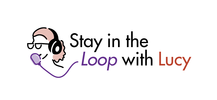|
What patterns do we lay in our youth that affects our outcomes later in life? I have two interviews today which give examples and perspectives on the importance of addressing our hurts and experiences when young as they affect so much of our social and emotional outcomes.
My guests are Rachel Andras and Simone Isemann
How do young people feel about life? Do we ask this question enough and by not asking it do we take away the confidence of knowing how to cope with life?
Many of these questions are contemplated in today's interview with Rachel Andras. My second interview is with Simone Isemann who walks us through Hoarding Disorder, a very under-reported issue and one that could well be in our bodies as much as in our environment. Please find below more information from Rachel Andras about how she came to be working in the way she does: Rachel Andras is a Social Educator and Gender Expert working for the INDERA Foundation (www.fundacion-indera.org) in Barcelona, Spain. She started a Youth Programme responding to a call for original proposals to deal with a series of entrenched problems and dynamics, which were a hurdle for carrying out daily activities in schools in Catalonia, Spain. They worked on topics such as bullying and cyberbullying, gender based violence, sexual violence, discrimination, body image, the impact of the mass media and advertising on young people’s life, Social Media as a communication means to evolve or to abuse between others. However, although much awareness was raised and lots of topics learned by the students, there seemed to be no real embodiment of what was learned. The normalization of violence and abuse had taken their toll and the students were able to repeat and recall what they learned, but they were not able to live it. Rachel and her foundation INDERA realized the level of disconnection and numbness was so high that they did not have a marker in their body that would let them feel the abuse and violence they had accepted as their normal, be it self-applied or through others. Of course, there were many young people who were very aware of what is going on in youth culture today, but they found they had submitted to the fact that this is how life goes and that you can try to stay away from it, but that you cannot really do anything about it. Inspired by the work of Serge Benhayon (www.sergebenhayon.com) and Universal Medicine (www.universalmedicine.com.au) a complementary Health Organisation in Australia, INDERA then started then to focus on body awareness and through this true health and well-being in different life settings and how our daily choices lead to inequalities, ill-health and abuse. In this they identified “self-care” and through this the building of “self-love” as an essential category of value-creation to support young men and young women to build a relationship with themselves that is not laced by gendered stereotypes and predetermined role models, but by the value of self-care based on their own level of self-worth and the building of loving relationships with themselves and others. This could also be understood as the difference between living cardio centrically – in relationship with the body and specifically the heart or living disconnected from the heart and body and therefore living everything that love is not. If we foster a loving connection with our bodies and ourselves we choose a state that is conducive to loving action. Alternatively in a body-divorced mind-driven state any and every atrocity becomes possible. So, once they had established that disconnection was at the root of many troublesome phenomena that we see daily in classrooms across the globe, the key was to provide support for those who were connected to remain connected and to support those that were dis-connected to re-connect. They did this specifically through activities to build body awareness as presented by Universal Medicine, such as Esoteric Yoga (www.esotericyoga.com; www.universalmedicine.net/esoteric-yoga.html), the Gentle-Breath Meditation (http://www.unimedliving.com/meditation; www.universalmedicine.net/meditation.html) and True Movement. INDERA also offered individual healing sessions for students and staff with a modality they also learned with Universal Medicine, called Esoteric Connective Tissue Therapy (www.universalmedicine.net/connective-tissue-therapy.html) Resources
Rachel Andras - about me
Lifeline Compulsive Hoarding Program Family as Motivators - A support group for those who care for someone with a hoarding disorder Teachers Are Gold - support for teacher to establish a more supportive rhythm in their daily lives to create space for connecting with students Gentle Breath Meditation - Meditation as mentioned in Rachel Andras interview Comments are closed.
|
Categories
All
AuthorLucy Dahill is the presenter of Stay in the Loop with Lucy, she has a passion for offering people the platform to share their voice. Young, old or somewhere in between we all have wisdom to share if we trust our hearts over our heads. |

 RSS Feed
RSS Feed